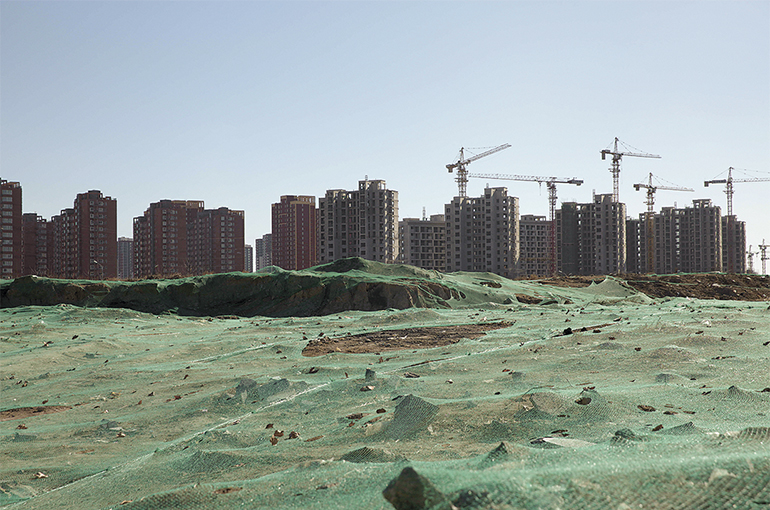 China’s Urban Investment Firms Get Little Built After Snapping Up Nearly Half of Land Auctioned in Last Few Years
China’s Urban Investment Firms Get Little Built After Snapping Up Nearly Half of Land Auctioned in Last Few Years(Yicai) July 30 -- Urban investment and development companies, which are controlled by China's local governments, secured the rights to develop nearly half of all the land plots offered at auction in the past three-plus years, but few of their housing projects have gotten underway, according to a new report.
From January 2021 to this May, firms or consortiums set up by UIDCs, also known as local government financing vehicles, won 46 percent of new land use rights for residential projects in 30 major cities and accounted for 33 percent of the deals by value, making them the biggest players at these auctions, according to the report by market research firm China Real Estate Information.
Against the backdrop of the downturn in China's real estate market in recent years, LGFVs, which are usually tasked with building urban infrastructure, have become key participants in local land markets amid several failed auctions.
But construction work has started on just a fifth of new plots secured by UIDCs, far less than at other developers such as centrally state-owned enterprises and private firms. The rate of development could further drop to 15 percent even under optimistic forecasts, partly because they are weaker in this business compared with the other market participants, per the report.
LGFVs have accumulated a total of nearly 330 million square meters of land so far where building work has yet to start, either by themselves or by seeking the help of contractors, it added.
LGFVs have been quite active in the land market partly because they were actioning the policies of local authorities to steady demand, but their bids at land auctions, done without carefully checking their own development capabilities first, are an important reason for delays, said Yan Yuejin, research director of the E-House China Research and Development Institute.
Cash Flow Drag
LGFVs have been slowing the pace of buying since the start of this year, mainly due to cash flow pressures, as a rising debt burden increases their interest payment obligations, which in turn drains their war chests for land purchases. From January to May, LGFVs spent CNY178.4 billion (USD24.6 billion) on land, down 16 percent from a year ago, according to data from Huatai Securities.
After securing the right to develop a plot of land, LGFVs can collaborate on its development, bring in a third-party builder, or sell the plot on, the CRIC’s report pointed out.
History shows that central SOEs are not keen to collaborate unless they have agreed to do so before the land was bought. So after securing it, LGFVs are not likely to be successful in teaming up with large property developers, the report said, leaving professional builders as one of the few feasible teamwork options.
Professional builders are better placed to run and the control costs of real estate projects, so LGFVs can outsource the construction and sales to them, which could create a win-win situation for both sides, per the report.
Just 1.7 percent of almost 10,000 new housing projects under development in 29 major cities were built by contract builders, showing that there is room for growth of this business model as the corresponding rates of building contractors in developed countries is significantly higher, the report said.
Editors: Tang Shihua, Emmi Laine